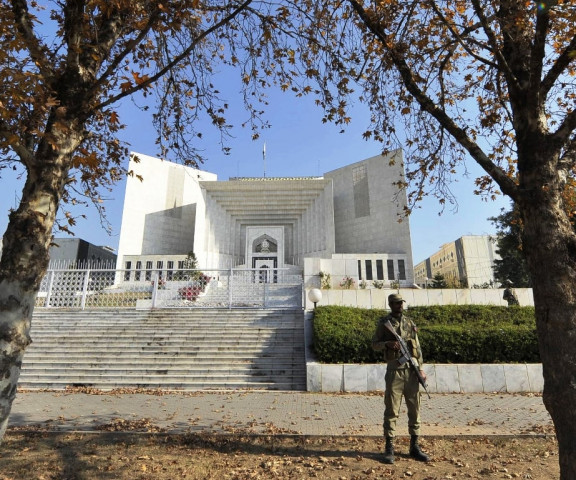Unclear status: SC seeks statement on status of G-B
Govt, relevant ministry to submit written reply within 15 days.

A fresh debate on the status of Gilgit-Baltistan was at the forefront of a Supreme Court hearing on Wednesday of two identical petitions regarding the enforcement of fundamental rights and appointments of judges in the G-B Supreme Appellate Court.
Attorney General Maulvi Anwarul Haq submitted, before a three-member bench of the apex court, that the Gilgit-Baltistan Self Governance & Empowerment Ordinance 2009, under which the affairs of the area are currently being run, was issued by the federal government.
Justice Jan asked the attorney general whether, under article 248 of the Constitution, the president could only issue such an ordinance, on the advice of prime minister, for areas that do not fall in any province. “If it’s true that the president did not issue the ordinance then the court could declare it null and void,” he said.
Haq told the court that the status of the area was also not clear due to some international disputes.
Highlighting the importance of the matter, the court directed the attorney general to submit a concise statement on the issue before the court.
However, on Haq’s request, the court issued notices to the federal government and the relevant ministry to submit their written reply in this regard within 15 days.
The court was hearing a petition by Dr Ghulam Abbas, a resident of the area, against the appointment of Rana Mohammad Arshad Khan as chief judge of the G-B Supreme Appellate Court.
The attorney general told the court that an appellate court had been established under the 2009 governance ordinance to ensure the right to appeal against G-B court decisions.
Responding to a query, Haq conceded that the appointments are made in the G-B court following an old method of appointment instead of the 2009 governance ordinance.
Akram Chaudhry, Abbas’ counsel, had prayed the court to declare the appointments of retired judges in the G-B Supreme Appellate Court illegal, unconstitutional and against the fundamental rights of the people.
After hearing of the court, Suleman Akram Raja, lawyer of the bar association of G-B, told The Express Tribune that there was no dispute on the status of the area.
The enforcement of fundamental rights there was an issue due to which they approached the highest court of the country.
Published in The Express Tribune, February 23rd, 2012.



















COMMENTS
Comments are moderated and generally will be posted if they are on-topic and not abusive.
For more information, please see our Comments FAQ